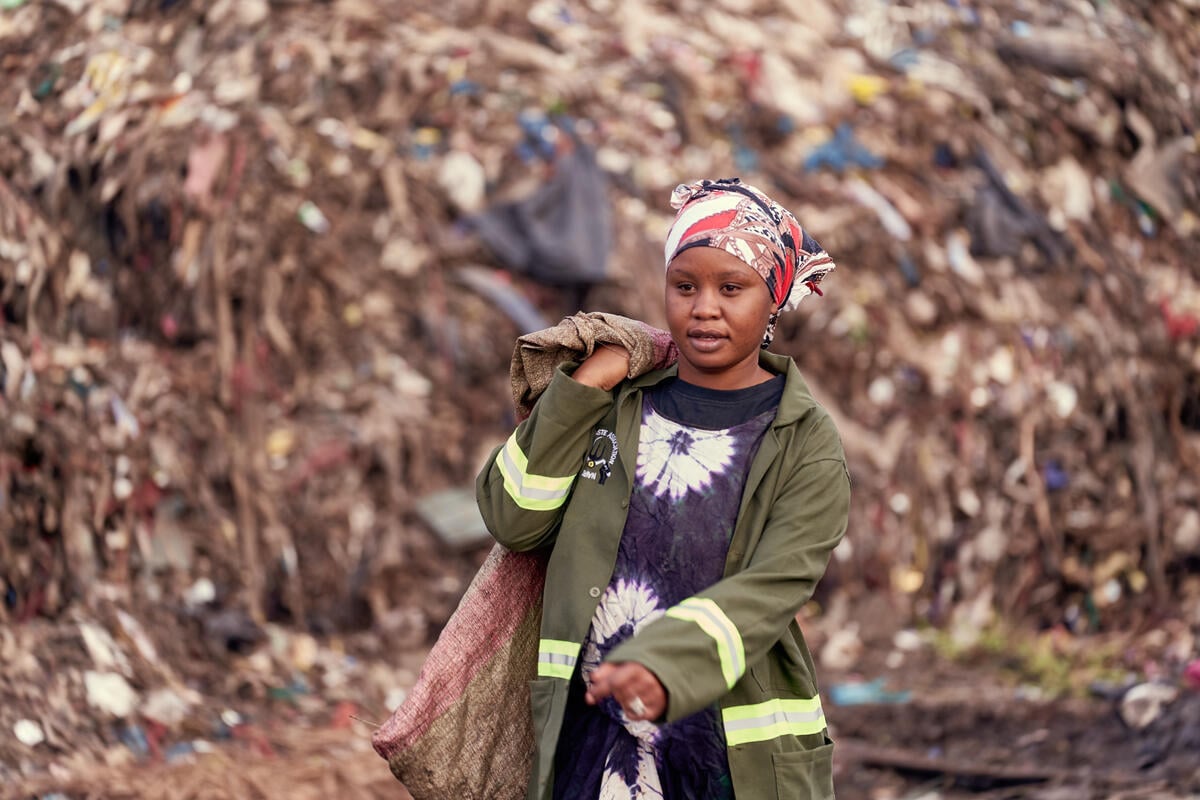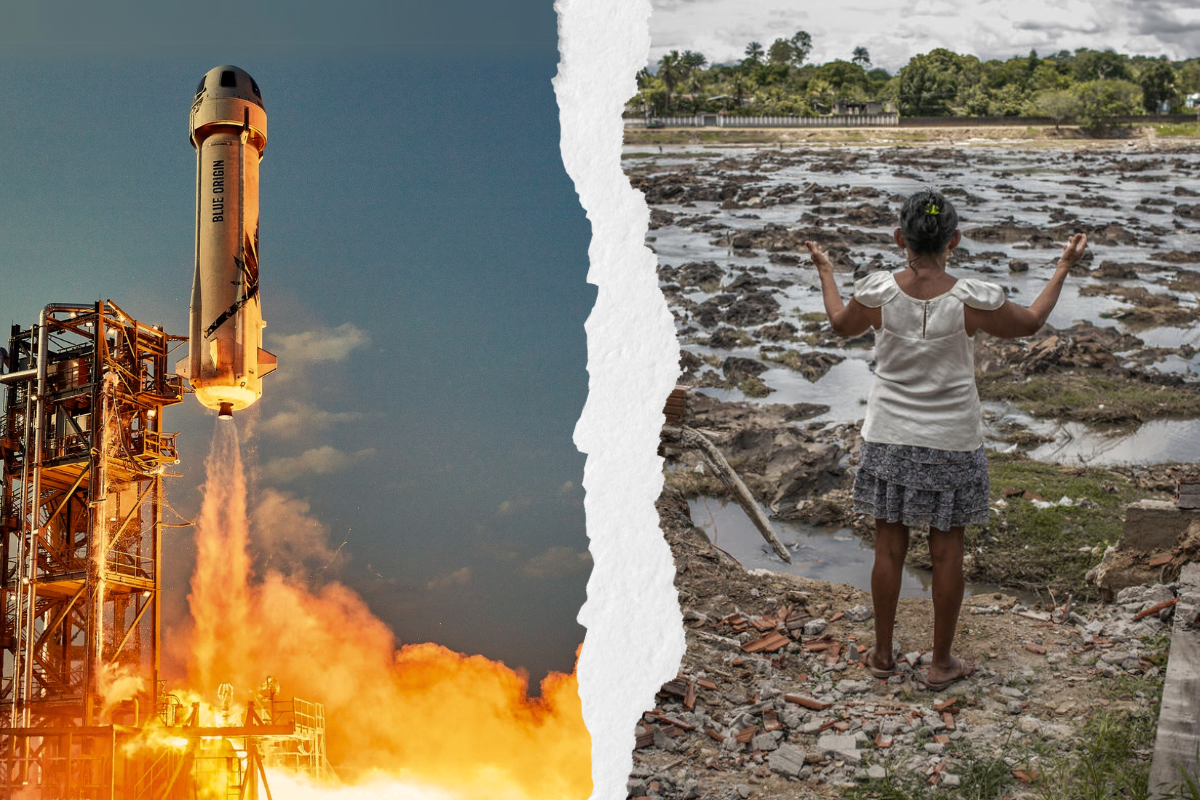The first session of UN negotiations for a Global Plastics Treaty — also known as INC-1 (Intergovernmental Negotiating Committee) — concluded in Punta del Este, Uruguay on December 2nd, 2022. We were on the ground to ensure world leaders deliver this once-in-a-generation opportunity to limit plastic production and use for our human rights, our biodiversity, and our climate. Plastic pollution is one of the most pressing environmental challenges of our time, with the impacts growing more severe every day.
The mandate to start the Global Plastics Treaty was issued earlier this year at the resumed fifth session of the United Nations Environment Assembly, and since then it’s been “go time”. Inger Andersen, Executive Director of the UN Environment Programme (UNEP), said the agreement is the most important international multilateral environmental deal since the Paris climate accord. But, the kind of plastics treaty our world needs can’t mirror the Paris climate accord — we need universal, binding rules for all countries who chose to ratify the treaty, instead of voluntary national commitments.
For INC-1, we attended the in-person delegation in Uruguay as part of a powerful, devoted, and passionate coalition making an unrelenting push for a strong and ambitious global plastics treaty.
What happened at INC-1?
As expected, the first meeting was highly procedural. It’s the first of five INCs to negotiate the Global Plastics Treaty with INC-2 likely being in Paris, France in May 2023. INC-2 will resume conversations that were not concluded during this meeting and be the start of more substantive treaty discussions.
Even though we did not see the kind of progress we’d like, important conversations and interventions were made at INC-1. For example, entire regions voiced urgency and ambition in the global plastics treaty negotiations. Coalitions have been built to provide expert perspectives to negotiators and demand a just transition for workers. Many countries — and even Break Free from Plastic brand audit’s top plastic polluters Nestle and Unilever — are now talking about a full lifecycle approach addressing plastic from when it was produced until its disposal. Importantly, several country delegations cited human rights as one of the objectives of the plastics pollution treaty.
Not-so-good interventions were also made. Some governments slowed down the process through lengthy discussions of moot procedures and processes. In a huge conflict of interest, the private sector continues to have far too much influence over these negotiations, including the polluters responsible for the global plastic pollution crisis.
Did you see industry participation on the ground?
Yes. Just as we were there to advocate for a strong treaty with clear global control measures, the petrochemical industry and major fossil fuel companies were out in force to undermine the ambitious treaty that people and the planet desperately need.
As of now, plastics producers are given the same consideration as communities suffering from their products and scientists are sounding the alarm. Plastics treaty negotiations can not be co-opted by welcoming oil and plastics industry lobbyists to dominate the discussion and weaken ambition. If the plastic industry has its way, plastic production could double within the next 10-15 years, and triple by 2050.
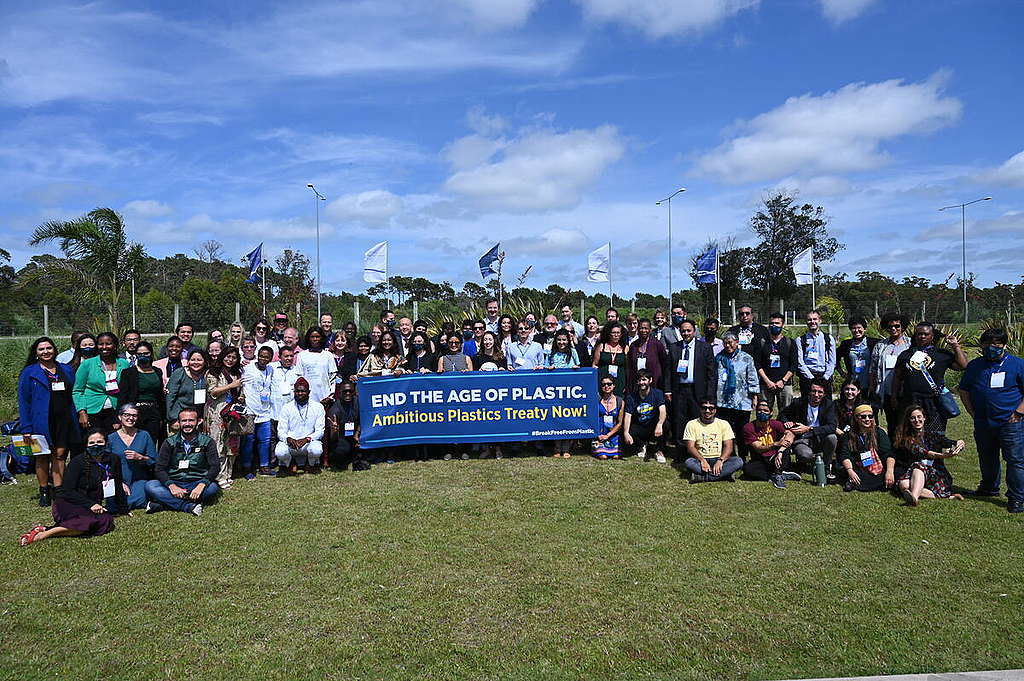
Now the big question. How do we end the age of plastic?
We need a solution that matches the scale of the problem. That means a global treaty that includes the entire life cycle of plastic, from extraction to disposal. We need a strong global plastics treaty that dramatically cuts plastic production by establishing global legally-binding control measures and eliminating false solutions, like chemical recycling and incineration, which allow the top plastic polluters like Coca-Cola and big oil and petrochemical companies like Exxon to continue flooding the world with even more plastic. A strong treaty is a regulatory tool to finally hold corporations accountable to mandatory measures instead of voluntary corporate pledges that fail.
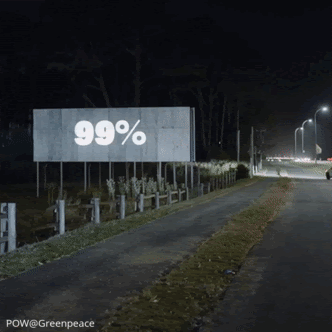
Read Greenpeace’s full position here.
We need you
We can’t win without you. Treaty negotiations happen behind closed doors, away from the millions of people like you that are fed up and demanding change. Together with our allies, we are determined to ensure that your voices are heard and felt in the room by government delegations. Only then will they rise to the moment, do what is required and stand up to powerful corporate interests looking to preserve the status quo.
As a people powered-movement, we’ve built a strong global campaign to #BreakFreeFromPlastic, and now it’s time to make it count. Will you join our campaign to end the age of plastics by clicking below?
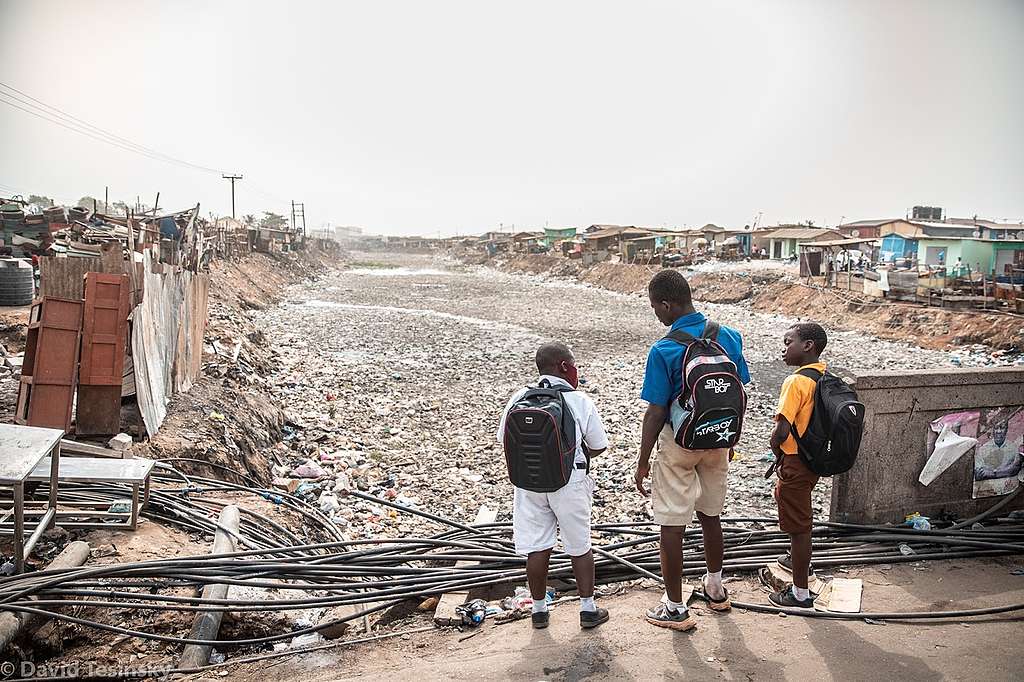
Tell world leaders to champion a strong Global Plastics Treaty during upcoming negotiations so that we can finally turn off the tap and end the age of plastic.
Take actionKaitlyn Trent is a Global Plastic Free Future Campaigner and Graham Forbes is the Global Plastics Project Lead for Greenpeace USA.

